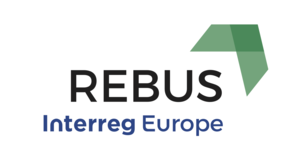A small delegation of Durham County Council and UK Coal Authority staff will visit Heerlen on 21st to 22nd November 2018, to learn more about its Mijnwater Project and business model good practice.
As a former coal mining area, with seemingly similar socio-economic circumstances as Heerlen, County Durham has a good supply of minewater with potential to generate heat, which it has aspirations to explore and exploit. The Coal Authority is working with Durham County Council as a Strategic Partner, providing its expert knowledge of the Durham Coalfields to demonstrate the potential of minewater as a sustainable heat source, which can be rolled out across substantial areas of the UK. Experts from Durham University Energy Institute are advising on innovative technologies and promoting the learning opportunities.
It is hoped that learning from Heerlen could potentially inform projects across the council’s land and building portfolio.
During their visit to Heerlen, delegates will hear about the Mijnwater Project from various perspectives:
• Elianne Demollin, founding mother of the project
• the Municipality
• technical – thermal smart grid
• strategic - Mijnwater 5GDHC and Energy Transition
They will undertake site visits to:
• a hot production well
• a cluster installation
• both small and large energy stations
Looking at Heerlen’s Mijnwater project from a Local Authority perspective, Durham County Council is particularly interested to learn about:
• Gene Bek - the first sports facility in the Netherlands connected to the mine water network
• How they have been able to connect 'residual heat from the APG Data Centre to the minewater distribution network'
• Mijnwater BV - business model for a municipally-owned entity
• How they have engaged Senior Managers & Politicians
• Wider economic development/regeneration benefits and implications
• Costs, Funding and Return on Investment timescales
• Risk management – especially regarding drilling and exploration
• Thermal smart grids; Cluster grids; and Energy storage
The Staff Exchange is expected to help improve knowledge and understanding, both of the technology and the process, whilst identifying and mitigating risks and uncertainties previously not identified. A better understanding of the process and technology could help to improve the outcomes, in terms of carbon emissions and potentially see how the technology could be expanded to provide heat across a wider area.

